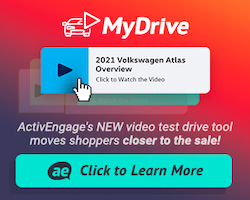 Do you have a replacement strategy for your job? Or have you been like me, and have just been too busy to bother with it? Now that I am changing positions, I am having to train my replacements and it is incredibly enlightening. I highly suggest you have someone sit next to you and explain what you do in an elementary fashion while that person writes it all down.
Do you have a replacement strategy for your job? Or have you been like me, and have just been too busy to bother with it? Now that I am changing positions, I am having to train my replacements and it is incredibly enlightening. I highly suggest you have someone sit next to you and explain what you do in an elementary fashion while that person writes it all down.
A few pieces of the training have been done with my boss present. As I have been the lead for everything Internet at Checkered Flag over the last 9 years, my boss has placed a lot of trust in me. I made connections in reports that I never needed to explain to him – I’d just say something like “with the stats from our website being up and the increased number of leads, I was shocked to see how low the sales were at Honda this month.” He’d take that simple statement and get to work on the Honda store. Now I am showing him how I made these connections, and really explaining the nitty gritty, and, as a team, we are now making even more connections. In this regard, we’ve made new discoveries and come across new ideas.
Putting things in basic terms has also better defined and educated people as to what I do as an eCommerce Director. I think it has helped to close the gap between what I think the position is worth and what my boss thought it was worth. Not sure that’s an absolute guarantee if you’re reading “pay raise” into that statement, but definitely worth a try!
We all have multiple systems and most of these systems do not speak to one another. As the Internet Sales Manager, eCommerce Director, Chief of Marketing, or whatever we are, we typically need to work in all of the various dealership systems. It is only natural that we begin to make connections, form processes, and create spreadsheets that help to do our job better. We can hold onto all of this in an attempt at job security, or we can help to protect our employer by making sure things can continue after we’re gone. Who knows, you may even earn something extra along the way to their education.
What would happen to your employer if you were to leave?







